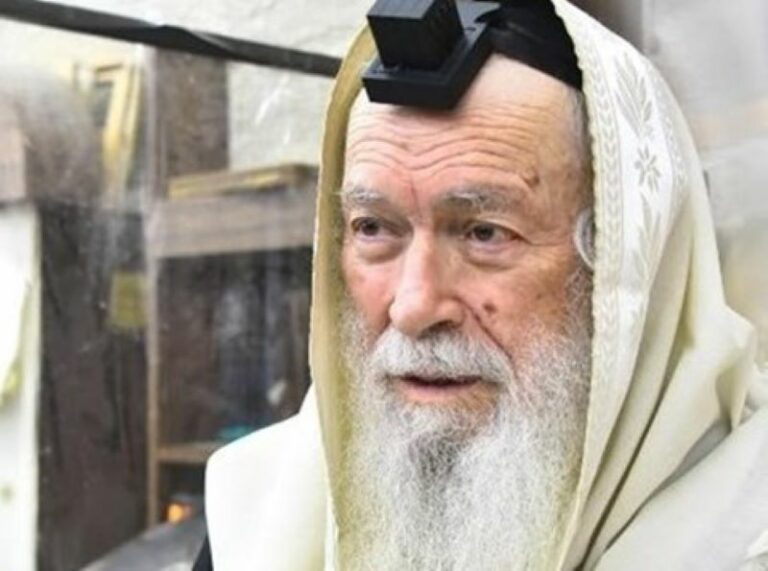 It was the Super Bowl that instigated the discussion. On the recent Super Bowl Sunday, a rabbi friend in the community expressed chagrin and astonishment that people who live in our communities had actually made use of or leased private planes as well as conventional modes of transportation to fly to Arizona to attend the Super Bowl. “Within just a few blocks of their homes people are unable to put food on the table for their children or themselves,” he said. And he added, “The money spent by our people on the Super Bowl could have solved a lot of urgent problems.”
It was the Super Bowl that instigated the discussion. On the recent Super Bowl Sunday, a rabbi friend in the community expressed chagrin and astonishment that people who live in our communities had actually made use of or leased private planes as well as conventional modes of transportation to fly to Arizona to attend the Super Bowl. “Within just a few blocks of their homes people are unable to put food on the table for their children or themselves,” he said. And he added, “The money spent by our people on the Super Bowl could have solved a lot of urgent problems.”
I tried to explain that I thought the conversation was more theoretical than practical. I also told him that without thorough research on the subject, it is safe to speculate that those who spent about a quarter million dollars or so buying tickets and attending the Super Bowl are also committed on a regular basis to giving inordinately large sums of money to charity, as well. In other words, I argued, it was not a choice between either the Super Bowl or helping people who are going hungry.
The rabbi heard me, but just couldn’t get over that members of our community would commit that kind of money to a football game. He may have a point, but he also may not be able to relate effectively to the different lifestyles that are out there and are still compatible with being a shomer Torah u’mitzvos. Certainly there is a great and overt need that exists, and you don’t have to have a creative imagination or go too far to search for it. The need exists right here in plain view, and each of us, of course, on our own level is required to do our part to help out.
At the same time, the Torah stipulates that the most you are required to give to charity from your earnings is 20 percent. What you do with the other 80 percent is solely your business, so long as it’s legal and proper. At the same time, we are b’nei rachmanim, known for our proclivity toward sensitivity and sympathy. So based on that assessment, I suppose, it is difficult to wrap one’s mind around the concept of spending large sums of money on a football game while somewhere, just a few blocks from where we live, someone cannot pay his electric bill and they are threatening to turn his lights or his heat off and leave him in the dark and the cold.
The existence of these contradictory circumstances is indeed difficult to fathom. But where does it start and, more interestingly, where does it end? Years ago, I heard a story about a well-known international philanthropist whose mother took ill while visiting Israel over Pesach. She was rushed to a hospital near Tel-Aviv, where a quick medical response saved her life. The story made the Israeli press and people associated with this institution were giddy over fact that these events would create a relationship between this hospital and the family involved.
One of the sons of this woman called one of the board members of this hospital to tell him how grateful they all were that such a fine institution exists and how pleased they were with the great professionalism and medical expertise of the hospital. He expressed assurance to the board member that after the holiday he would express his family’s gratitude in a material fashion. Shortly after yom tov, a check for $1,000 arrived in the New York office of this Tel Aviv hospital. The way the story was told to me, people were flabbergasted, stunned, and shocked. You save the life of a woman—the matriarch of a family known for distributing millions to tzedakah—and this is what you get?
A few weeks later, a mutual friend of the hospital and the family reached out to try to get an explanation. People involved with the institution were expecting $100,000 or at least $50,000. But $1,000? What was going on? Shortly thereafter the hospital received an explanation. And that was that the family, as a matter of priority, was dedicated to supporting Jewish education and not health care, so as a matter of policy this was all they could do at that time.
And that’s the way it remained. The hard lesson is that regardless of how much money is out there—and it is certainly billions of dollars—it simply cannot fully allay or solve every personal or communal financial problem. Why are so many yeshivas having such a tough time paying bills and making their payrolls here and elsewhere around the country? Is there anything more important than seeing to it that our yeshivas—where our children study Torah—are financially solvent?
Further, on this subject of prioritized philanthropy, an issue that needs to be addressed just as urgently is how we give money to far-away institutions—whether in the U.S., Israel, or elsewhere—while those closest to us suffer grievously. This debate surfaces every now and then and is particularly relevant to the Five Towns, which is arguably the fundraising capital of the world. There is a plethora of organizations and causes that parade nonstop through this area—some known and many unknown—who walk away from our communities with not a paltry sum that certainly could be put to good use locally.
The few times over the last few years that this topic was brought up in these pages, the discussion usually got bogged down in technicalities and the interpretation of what constitutes a local organization. Those involved in the discussion on a serious basis note that being a “local” organization or yeshiva cannot only mean being a yeshiva, kollel, or organization that is geographically local. They say that certain yeshivas—for example, Lakewood, Chaim Berlin, or the Mir—should be considered local by the mere fact that so many people who live here attended those yeshivas. It’s a valid argument, but at the same time serves to undermine the effort to build up local institutions.
I’ve been told that there is a system in some other philanthropically active communities, where there is a tax levied on organizations that come into the community to fundraise. If it works somewhere, there may be hope that it will work elsewhere in time. But it’s unlikely that we can ever institute this kind of policy here as one unified community. That is to say that, while all our mini-communities are active in supporting all kinds of institutions, I believe that the exceptions that would need to be made and the heterogeneous nature of our sliver of the globe will make any kind of policy of this nature impossible. Keeping organizations out won’t work. If we can, for starters, levy a tax on outside fundraising, that might demonstrate hope for our local schools and organizations.
So while we can try to channel the flow of tzedakah in a direction that best benefits those closest to home, we certainly cannot in any way, shape, or form influence how philanthropists or others spend their non-charitable income. No matter how much money is given, here and in Israel, there will always be a need that is not adequately addressed. And that may just be the nature of our reality-based imperfect world outside the confines of the fantasy-like environment of the Super Bowl.






15 Responses
I believe that the halacha allows a person to go over the 20% mark for certain needs. Consult your own rabbi, I also thin this website should not post things as halachically accurate before consulting their own rabbis.
and shelling out ridiculous amounts of $$ on pesach programs fits in how?
“No matter how much money is given, here and in Israel, there will always be a need that is not adequately addressed.”
It depends when. see Rashi in parashas Reah- 15,4.
“efes ki lo yihiye bicha evyon”
YW was only posting an article to elicit discussion; they didn’t say that Mr. Gordon gave you a psak.
I think Mr. Gordon is touching on three unrelated issues here: what defines a local charity, who decides which charity is most important and should a person spend money on the superbowl when so many others are desparate for money for basics.
My personal opinion on the local issue, is that the local vaad haRabanim have to decide what is local, and then the community will have a guideline to follow. Or else, a person should simply seek the guidance of his own Rav and let his Rav decide what is local, and go with that.
As for which charity is most important, I think one should ask his Rav what the most important charity sectors are, and any “pet-project/cause(s)” he may have and go from there.
Regarding the superbowl issue, I am not in their shoes so I certainly cannot judge them – al tadin es chavericha ad shetageia limkomo.
Having said that, since I feel that since ORGANIZED professional sports, in general, is a modern-day version of gladiators, bull-wrestling and other activities that were (and remain) clearly not biderech haTorah, it is, therefore, inappropriate to attend a super-bowl game (or, likely, for that matter to make a super-bowl party). I, of course, do not say this with any authority, as I never inquired of a Rav, but this is my feeling on the matter.
If that is the case, then I understand the Rabbi’s comment how he could not fathom why people would throw away that kind of money when other people need money for basics.
Whereas, say, driving a Lexus versus a Toyota and giving the cost difference to charity, one might argue (As difficult as it may be for some to even entertain the idea, and I do not disagree) that since we anyway need a car for day-to-day matters, one is entitled to spend more of his money on a fancier car for himself, rather than have to give that “extra” money to a needy cause.
going to yeshiva these days is Pekuah Nefesh – Saving a Life. Kiruv is saving a life. People are not having children because day school costs too much. The super rich need to wake up and dish out the money! There is a Judge in Heaven.
Wake up and smell the coffee…
the fact is without a question of a doubt if all were giving up to the chomesh- %20 there would not be a problem.
The issue is and the numbers are simple that if people are spending 50k on pesach and 25-50k on vacations live in muti-million dollar homes own/lease numerous vehicles valued hundreds of thousands of dollars they are not earning 102,000 a year. If so many people spend so much money on above so many people must have so much money- or even perhaps they don’t, and if they don’t then their priorities are all messed up. I think thats what the message is – are your priorities in order.
The article is not talking to those who are giving %20 to tzedakah away.Spend time in the 5 towns and you will see how crazy the keeping up with with the freidmans is like.And by the way there is an inyan of hatzne leches even in ones personal life!
Spending monies is a personal choice, while adhering to the mitzvah of tzedakah and maiser. Forcing individuals to donate to specific tzedakah needs or where and how to spend money, will destroy the capitalist economy. Why earn? If I do NOT have the freedom of how, where, why to spend.
Frankly in this area we can all learn from Warren Buffet. He has more money than all these people, lives simply and is leaving alot to charity.
the article although well written,
fails to take into account the countless “mamore chazal” and gemoras sifre mussor etc
which specifically discuss this very issue of one having a great abbundance of wealth(=shefa)
which extoll those who realize that when hashem entrusts them with wealth the intention is not to give a maximum of 20% and leave the rest in ones portfolio
they acknowledge they are only care takers and that the shefa is given to them to give out to those who are in need and less fortunate
there are very exacting halochos in shulchun aruch which advise one on how and which order and what takes precedence etc in dispensing tzedoka
of coarse a rav should be consulted regarding these intricate halachoes but the thrust of the article seemed to convey one who gives his 10 or 20% maaser should pat himself on the back and sit back in his private jet to arizona while his neighbor struggles to put bread on his table and cover his bills barley scraping enough to pay the minimum tuition bills which can amount to 25000 and up
and yes this rav is correct that people have their priorties wrong if they can shell out 250k for 2 days of fun !!even though they can well afford it what type of chinuch is that how do you think one’s children grow up knowing his father can spend 250k for his pleasures in life ??
#10, but where does it end?
If I have a steak for dinner, should I, instead have had macaroni, and given the $5 difference in cost to Tzedaka? Should I have bouth a Kia instead of a Honda and saved $10,000 and given that to Tzedakah?
Where do you plan on drawing the line? Who are you to decide what is considered Muttar pleasures?
ahavat chesed 20:1 lists several exceptions to the 20% maximum limitation.
here are some that would apply here.
1) extremely wealthy people.
2) when hungry and indigent people approach the donor for help (as opposed to hime distributing his zedaka money on his own). In this case one can not say, I already gave my maaser, or chomesh and I don’t have what to give you.
3) One who is not careful how he spends his money and wastes his money on things that are not important has no right to say I gave my 20% and to not give more when there are poor people in need.
Point is baruch hashem there is money out there and I think the Rav in the article was saying that money shouldn’t be wasted on such stuff when people are in need. Clearly they b’H have an abundance if they are taking private jets to the super bowl, but even if they already give 20% they are obligated to help more and have no excuse if they can waste money like this. (maybe those who went to the super bowl on private jets are constantly giving and give more than 20% and don’t turn any one away, I don’t know. I am just stating the halacha and what it seems was bothering the Rav in the article.
think, if just for 1 year all this wasted money was put into a project like a tuition trust fund or food fund where they can work off the interest for that cause, think of how much good can be accomplished and what kind of a zechut those donors would earn. our whole existance is for avodat hashem and for us to earn our way to the next world, the real world. Wasting money as stated in the article is clearly not the ‘avodat hashem investment’ that I believe hashem had in mind when he sent that money into the world to those people.
DWKL1, good points.
Again, I could not relate to what kind of money these people have, so I certainly can’t judge, but as I said above, I do see where the Rav is coming from when he says that their priorities are a bit out-of-order if they can collectively spend $250G on, of all things, the Superbowl, and, as you said, what kind of chinuch does it give their kids when they see such a frivolous waste of money?
There is more than just the one tremendously great Mitzvah of Tzedaka even for the great people who are mekayeim it 100%.It is no excuse not to live 100% al pi Torah,and going to the superbowl is just not the way.And if you are having trouble understanding why,oy! have you gone far.may you be zocheh in the great zechus of Tzedaka to Taharas Halev and spend your long life the right way.
honestly, i have no idea why people have an enjoyment of watching a couple of bull dogs tackle eachother over a ball, but still, who cares what people are doing with their $$ no ones telling you what to do with it, anyways its not going to change what their going to do with it, and anyways maybe such $$ for them is worth a lot more for middle-class society. (btw did anyone have a superbowl party? you guys spent $$ on the food, right? and anyone who watched it, i think it may be considered ‘bitul zeman’.)
If there are any superbowl tycoons following this thread, what do you think of this: how about flying first class instead of on a private jet? I know it takes away part of the experience but
a) it cuts costs
b) your “environment awareness” may impress whatever business contacts you’re meeting.
I for one will not take away your right to go to the superbowl, instead of watching in from the convenience of home on a large screen TV. Go, enjoy yourself, but leave out a few of the perks, and see if you don’t enjoy the experience as much.